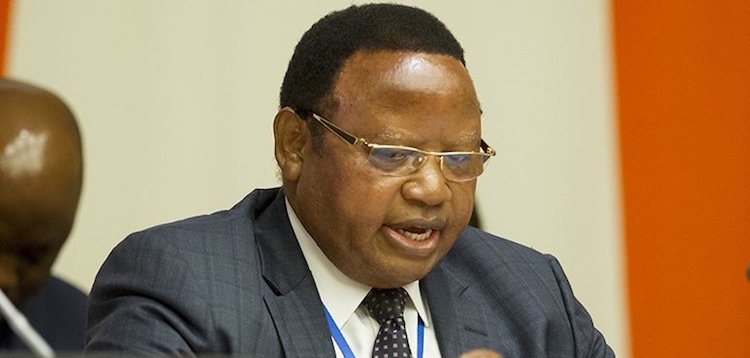By J Nastranis
NEW YORK (IDN) – The new president of the United Nations Economic and Social Council (ECOSOC), Frederick Musiiwa Makamure Shava of Zimbabwe, intends “to dedicate enough time on the question of infrastructure development and industrialization, especially in the context of support for African development, and as a high priority for all the countries in special situations”.
Shava, Zimbabwe’s Permanent Representative to the UN in New York, was elected on July 28 to head the 54-nation body during its 2017 session. ECOSOC is the principal organ for the socio-economic and related work of the United Nations.
He replaces Oh Joon, Permanent Representative of the Republic of Korea, who chaired ECOSOC during the 2016 session that was characterised by celebrations of the 70th anniversary of the Council and by a variety of global challenges.
Three days before ECOSOC convened first time for its upcoming session, the UN General Assembly unanimously adopted a resolution proclaiming the period 2016-2025 as the Third Industrial Development Decade for Africa.
Stressing the importance of the achievement of Agenda 2030 for Sustainable Development, Shava said: Goal 9 of the SDGs calls for building resilient infrastructure, promoting inclusive and sustainable industrialization and fostering innovation.
“The Africa Agenda 2063 calls on African countries to transform, grow and industrialize their economies, and modernize agriculture and agro-business through value-addition and productivity increase.”
Driving home the point, Shava said, infrastructure remains one of the key impediments to development in Africa as its poor state and underdevelopment inordinately increases the cost of doing business.
This is compounded many times over for African countries that are landlocked and have to rely on neighbouring countries, with equally poor infrastructure, for access to external markets.
According to the African Development Bank, based on a sample of 48 economies, Africa generates roughly the same level of electricity as Spain, although Africa’s population is nearing 1.1 billion compared to a population of 49 million in Spain.
The Priority Action Plan of the Programme for Infrastructure Development in Africa alone estimated an investment need of US$68 billion between 2012 and 2020.
Funding for infrastructure projects is therefore a challenge that has not yet been surmounted in Africa and most countries in special situations, declared the new ECOSOC president.
Historically, industrialization has been associated with economic progress. In many cases, the failure to translate economic growth into employment and social development is explained by the failure to transform from agro- commodity sector driven progress into successful industrialization.
Against this backdrop, Shava said, he plans to organize “one or two special meetings” of the Council in order to come up with viable proposals and recommendations on this complex but critical topic.
Another priority of the new ECOSOC chief derives from the significance of “the nexus between development, human rights, peace and security”.
Indeed, the 2030 Agenda (Goal 16) recognises the need to promote peaceful and inclusive societies for sustainable development, provide access to justice for all and build effective, accountable and inclusive institutions at all levels.
There can be no sustainable development without peace and no peace without sustainable development.
In view of this, during his presidency, Shava intends “to explore options for enhancing the partnership between ECOSOC and relevant UN bodies such as the Peacebuilding Commission on the interlinkages between development, peace and security”.
“There are many worrying trends in the world today. Almost on a daily basis, we are confronted with disturbing reports of instability and armed conflict, global humanitarian and human rights crises, terrorism and violent extremism, inequality and growing economic, social, and environmental tensions,” the new ECOSOC chief said.
“Consequently,” he added, “surmounting these ills, through the SDGs, in all societies, should be our rallying call. And this should be the central endeavour in all countries, in this Council, and in all multilateral institutions.”
Despite all hurdles, there is hope, stressed Shava. “In all the testimonies I hear in this Council, there is complete agreement that the world today has better capacity to meet these development aspirations than at any other time in human history.”
The opportunities for eradicating poverty and empowering people through investment, trade, sustainable production, as well as for social services that leave no one behind are unprecedented, he added. [IDN-InDepthNews – 29 July 2016]
IDN is flagship agency of the International Press Syndicate.
Photo: ECOSOC’s new president Ambassador Frederick Musiiwa Makamure Shava. Credit: UN

